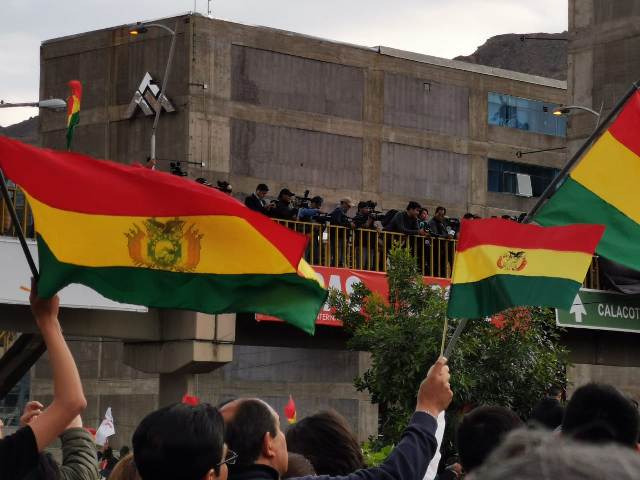UN expert concerned about delayed judicial election process in Bolivia
“The conduct of judicial elections is one of the key elements to ensuring the independence and impartiality of justice in Bolivia,” the Special Rapporteur said.

A UN expert today expressed grave concern about the delayed election process for Bolivia’s highest judicial authorities.
“The right to a fair trial requires an independent and impartial judge. In Bolivia, for the high courts and the Council of the Judiciary, the Constitution requires the election of qualified candidates who have been vetted in the Plurinational Legislative Assembly. The participation of civil society at all stages is important to strengthen credibility in the process,” said Margaret Satterthwaite, Special Rapporteur on the independence of judges and lawyers.
The expert noted that the absence of political agreements had led to the expiry of the terms of judges of the Plurinational Constitutional Tribunal, the Supreme Tribunal of Justice, the Agro-Environmental Tribunal and the Council of the Judiciary.
“The conduct of judicial elections is one of the key elements to ensuring the independence and impartiality of justice in Bolivia,” the Special Rapporteur said. “With this in mind, I insist on the importance of holding a transparent, participatory and comprehensive process to preselect the candidates in the Plurinational Legislative Assembly and move forward with holding the elections.”
The mandate of high judicial authorities elected in 2018 ended on 31 December 2023, without new judicial elections taking place. Late in December, the Plurinational Constitutional Tribunal decided to extend the mandate of the Judicial Branch authorities and the Plurinational Constitutional Tribunal “on an exceptional and temporary basis, until the new authorities are elected and installed”, according to ruling 0049/2023.
“The right to a fair trial, enshrined in Article 10 of the Universal Declaration of Human Rights and Article 14 of the International Covenant on Civil and Political Rights (ICCPR), stipulates a competent, independent and impartial court as one of the guarantees of due process,” Satterthwaite said.
She pointed out that international standards on the independence of the judiciary make it clear that the requirement of independence refers, in particular, to the procedure and qualifications for the appointment of judges, and guarantees of security of tenure and conditions of service.
“Considering no date has been set for the judicial elections so far, I am concerned that this lack of political agreement risks undermining the independence of the country’s judiciary and that the terms of the current incumbents have been extended indefinitely,” the expert said.
The Special Rapporteur recalled that her predecessor had made an official visit to the country in February 2022. “I urge the Bolivian authorities to implement the recommendations set out in the report following the visit,” she said.
Satterthwaite has been in contact with the Government of the Plurinational State of Bolivia regarding these concerns.










